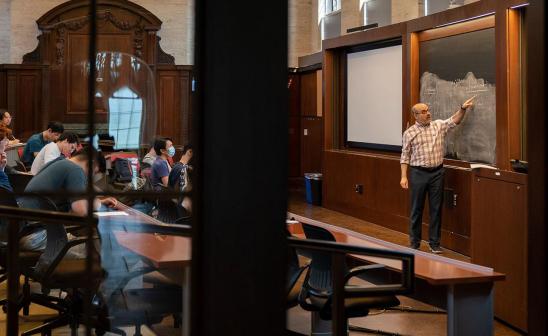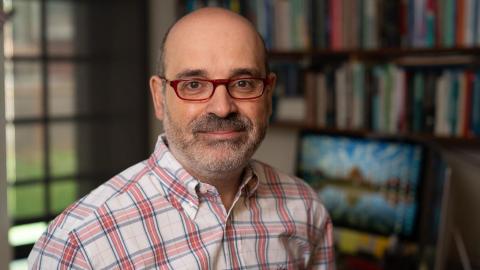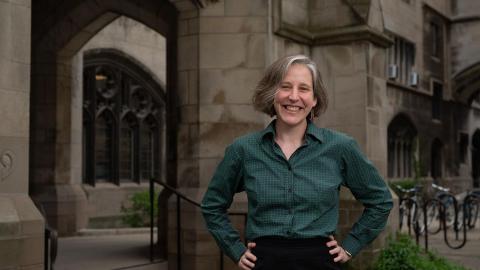2 SSD Faculty among 2022 winners of Quantrell Teaching Awards

This article has been edited to highlight award recipients from the Division of the Social Sciences. To see the full list of recipients, visit the UChicago news site here.
The transformative education that students experience at the University of Chicago begins with the teachers who inspire them.
The University annually recognizes faculty for exceptional teaching and mentoring of undergraduate and graduate students through the Llewellyn John and Harriet Manchester Quantrell Awards, believed to be the nation’s oldest prize for undergraduate teaching; and the Faculty Awards for Excellence in Graduate Teaching and Mentoring, which honor faculty for their work with graduate students.
Llewellyn John and Harriet Manchester Quantrell Awards
Victor Lima, Senior Instructional Professor of Economics
For Victor Lima, teaching economic concepts can feel like “more of an art than a science.” That’s why the senior instructional professor designs courses that are a blend of tools and applications—combining theoretical frameworks with compelling real-life examples.
His goal is to make sure that students not only understand the material, but can apply what they learn to their specific interests.
“In my opinion, the power and flexibility of the economic approach are best illustrated with examples. If those examples appeal to students, then class discussion will be fascinating,” said Lima, who is co-director of undergraduate studies and master’s programs for the Department of Economics.
In a nomination letter, one student wrote about how Lima’s open-ended prompts sparked heated debates with friends over dinner. They also described how Lima pushed the class to engage with economics more broadly—to think about the discipline’s fundamental insights, along with its strengths and shortcomings as part of a larger intellectual landscape.
Lima also prioritizes research structure as part of his teaching, showing students how a consistent framework can be used to test behavioral observations across a range of human activity. By starting students on the road to critical economic thinking, Lima hopes to foster the analytical skills that will serve them well regardless of their postgraduate paths.
“I believe that all jobs are ‘research jobs,’” Lima said. “A thorough understanding of the economic approach, and the ability to apply it broadly, will be invaluable to our students’ future success.”
Johanna Ransmeier, Associate Professor of History
Assoc. Prof. Johanna Ransmeier teaches the types of courses she would like to take herself. “Even when I am leading a lecture—and theoretically, standing at the front of the classroom—I am still a student of history first,” she said. “I want to engage with historical materials with curiosity, humility and respect for the experiences of the people of the past.”
Ransmeier’s research focuses on modern China, especially the areas of law, crime, family life and comparative unfreedoms. She shares with her students the subjects of her ongoing scholarship, “because I want to share the ideas that are animating the material for me—the problems that I am trying to work out.”
Before graduate school, Ransmeier worked in human rights and as an interpreter. She was also involved in the contemporary art community in Shanghai as a practicing artist and printmaker; those experiences shaped her commitment to the freedom of expression, and to political and government accountability—ideas that continue to inform her teaching, research and writing.
“It’s a cliché to say this, but teaching is an integral part of scholarship,” said Ransmeier, noting that she plays the role of tour guide, detective, interpreter, sometimes sparring partner or debate coach. “The classroom offers opportunities to think together, to debate and—perhaps above all—to listen to each other and to the sources. As an instructor, it’s important that I foster a safe environment for students to experiment and interact in this way.”
She added that history has always been politicized and manipulated, which underscores the importance of careful examination and interpretation of the evidence—especially, she said, as more and more people attempt to weaponize history.
“This puts an enormous amount of pressure on our task as teachers, makes the history classroom a potentially contentious space, and creates new challenges and obstacles to our ability to do effective research and guide students in their research,” Ransmeier said. “This is an enormous responsibility.”
 THE UNIVERSITY OF CHICAGO
THE UNIVERSITY OF CHICAGO



